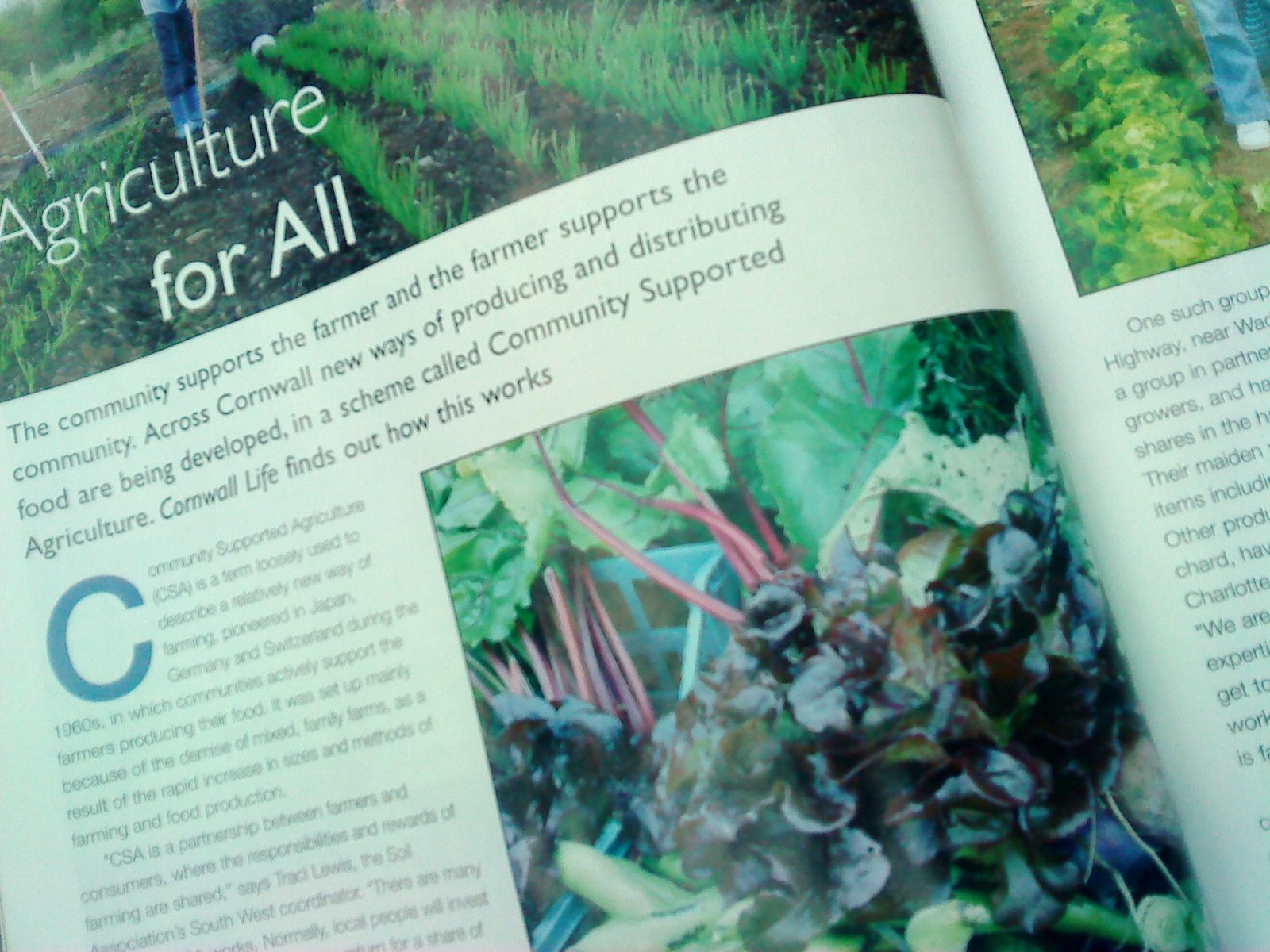
September 7, 2009
Various pioneering efforts to grow our own food in the far south-west are put under the spotlight in the September issue of the magazine Cornwall Life.
The four-page spread features several pictures of Camel CSA volunteers at work on our two-acre plot at St Kew Highway.
It reveals how our community project is helping Cornwall play a leading role in the Making Local Food Work programme led by the Plunkett Foundation. As Jan Trefusis of the foundation says:
Cornwall really is the star of this programme, with a high proportion of our uptake for the project coming from across the region.
Rewards
The article emphasises how community supported agriculture can offer a sustainable way of producing local and seasonal food where the rewards and risks are shared between grower and consumer.
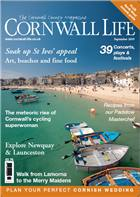
It describes Cornwall’s other emergent CSAs at Harrowbarrow near Callington and in the Lamorna valley and at Lowarth Brogh near Land’s End. It tells us about plans to set up similar projects at Trevalon Organic Vegetables at Herodsfoot, Liskeard and on a farm near Launceston.
Traci Lewis of the Soil Association adds:
Who knows what can be achieved when we all start supporting each other more? We look forward to working with more landowners, farmers, growers and communities in Cornwall to find out.
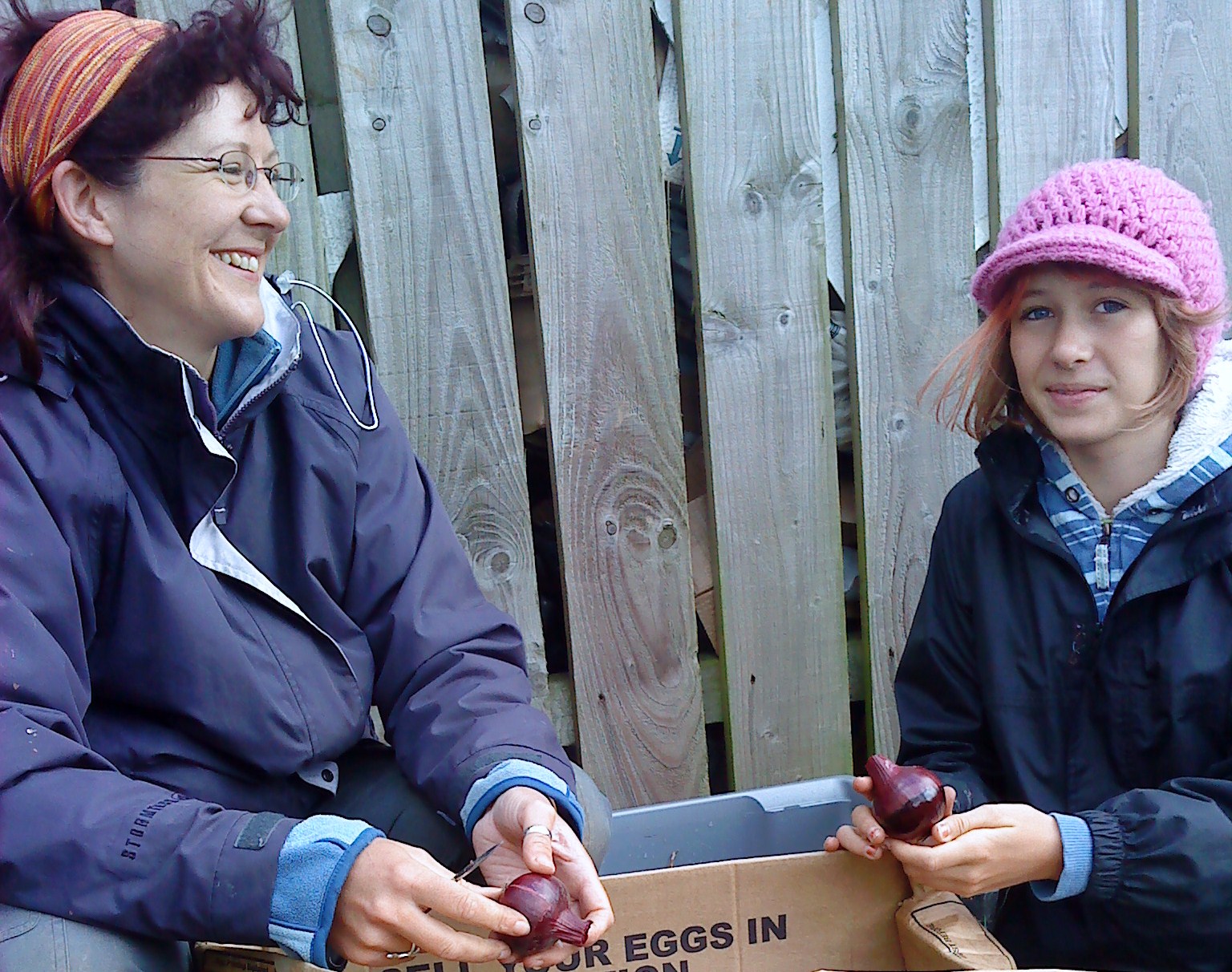
August 30, 2009
More and more young people are getting involved in Camel Community Supported Agriculture’s pioneering efforts to promote local food.
Fourteen-year-old Jenny Simmons, who’s at Wadebridge School, has chosen Camel CSA as the volunteering activity for her Duke of Edinburgh’s bronze award programme.
This gives young people the opportunity to become involved in a project that they really care about.
This week Jenny helped prepare the onions for the boxes. She worked alongside packing supremo Trish and fellow picking and packing team members Cath, Charlotte, Mark M, Mike H, Penny, Robert and Steve.
Marathon
The volunteer growers have at long last completed the marathon task of removing the black plastic mulch from the overgrown strawberry beds.
They also weeded the beetroot and removed the vicious thistles growing among the Brussels sprouts. Mark N strimmed the overgrown edges.
Once all the plastic had been dug up and removed, Jeremy got out the tractor and cut back all the surface weeds.
Now he can go ahead and plough the ground in preparation for sowing a crop of green manure.
This Sunday’s team comprised expert growers Jeremy and Mark N plus Cath, Charlotte, Danny, Mark M and Mike H.

We need you!
A big turnout is requested next Sunday when we’ll peel back the protective fleece and assess the damage to the 1500 brassica plants that were planted out last month.
These are the plants donated by our newest sponsors, Fentongollan Farm at Tresillian.
We must weed the 20 long rows of red cabbage, green cabbage (two varieties), cauliflower, purple sprouting broccoli and kale (both red and green).
So please make an extra special effort to turn up. We need all the help we can get!
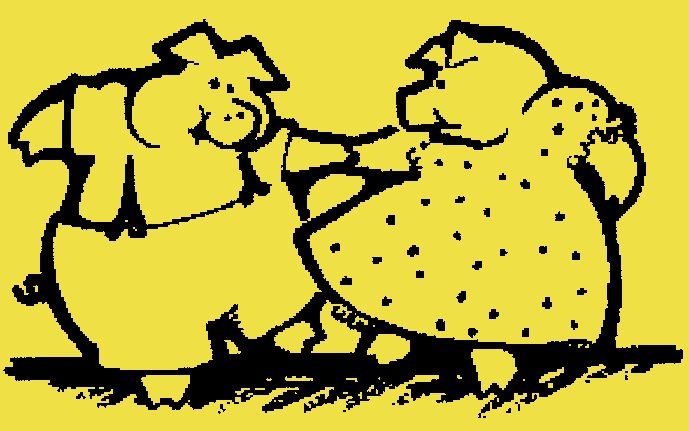
It’s time to get those feet tapping and your dancing shoes on. The barn dance in support of Camel Community Supported Agriculture is on Saturday 12 September 7.30 – 11 p.m. in St Mabyn village hall.
All the dances will be called by Howard Burrows, the renowned Cornish caller. So you don’t need to have any experience.
The event’s being organised by demon dancers and Camel CSA members Mike and Yvonne Haywood. They say:
“This is the most fun you can have with your clothes on.”
As the proceedings can get boisterous, they respectfully request no children under the age of seven.
Buy your tickets for £4 in advance from Mike and Yvonne on 07966757318 or from St Mabyn PO & Stores. All the proceeds from this fund-raising event are being donated to to Camel CSA.
Please bring your own drink.
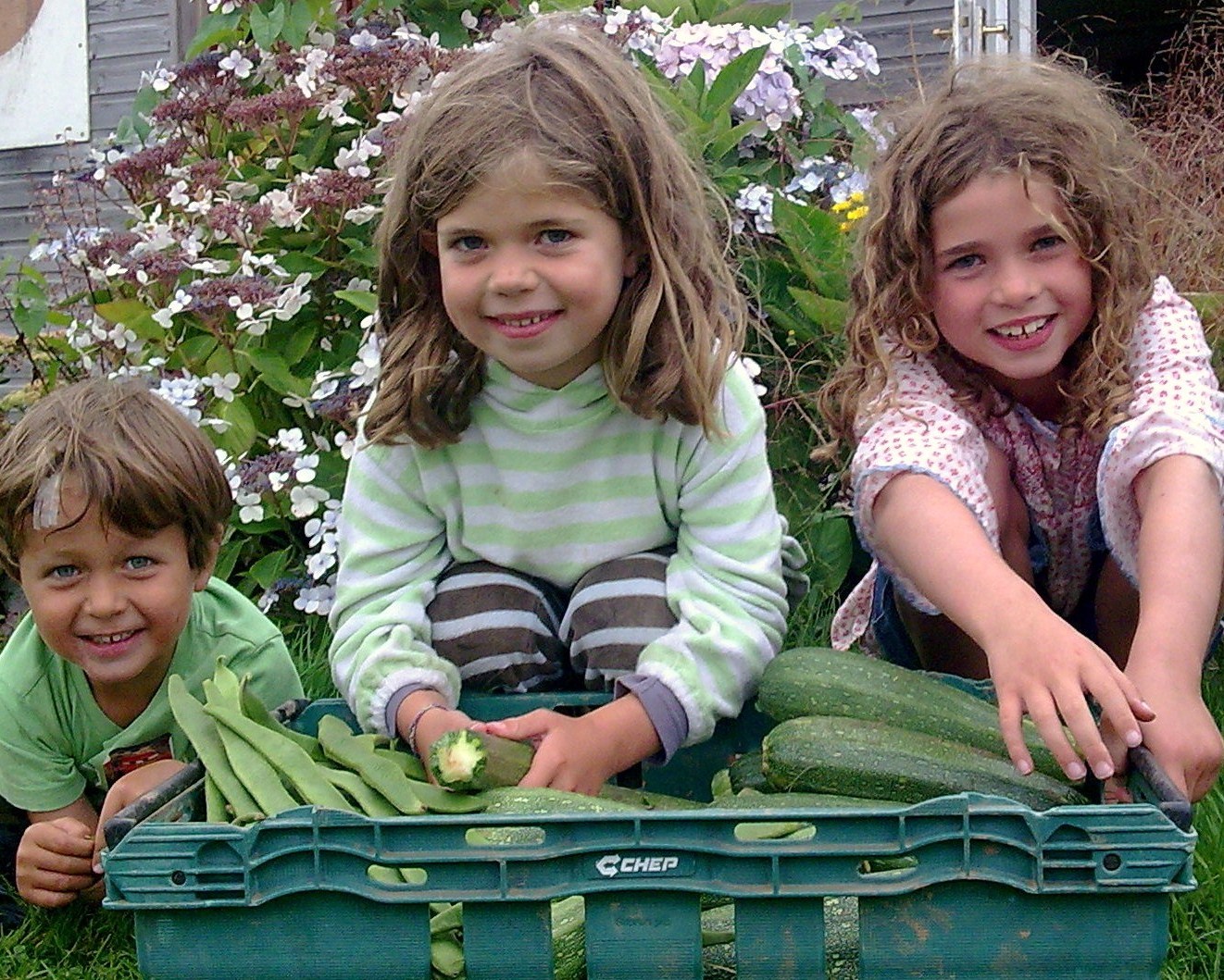
August 29, 2009
Three of Camel CSA’s youngest members contributed their own homegrown veg to this week’s boxes.
Lilac (8), Willow (7) and four-year-old August grew all the runner beans and some of the courgettes.
Core group member Antonina, co-owner of St Kew Harvest Farm Shop, explains:
“Lilac, Willow and August wanted to share their harvest grown at their home at St Kew.
So I paid them £8.60 for lots of runner beans and courgettes and three large marrows which they have grown from seed all by themselves.
They’ve been following our blog, and got concerned about the beans being eaten!”
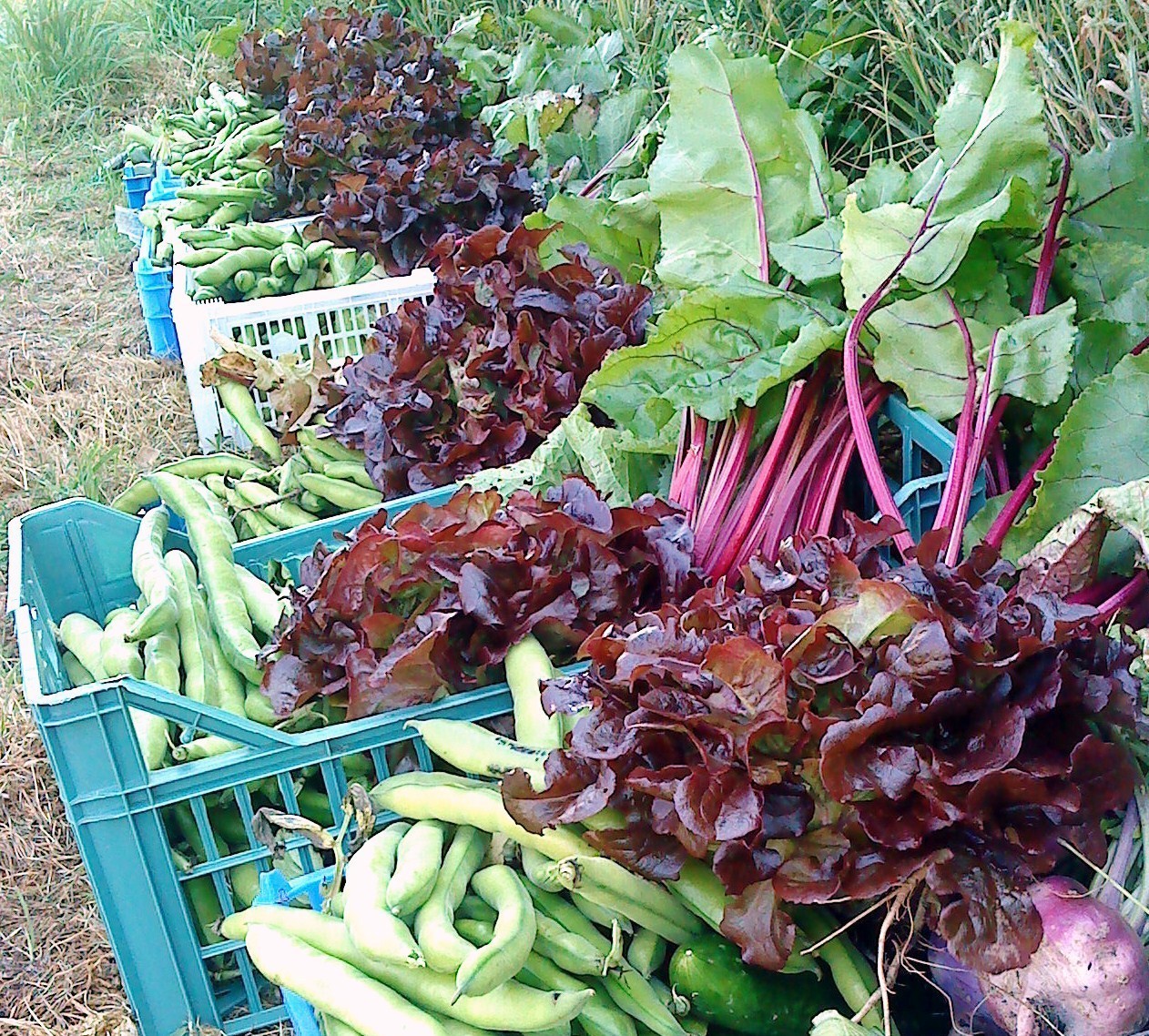
August 25, 2009
The media reports constant debates among “experts” as to the true costs and intrinsic benefits of eating organic food. Politicians have effectively copped out on this one. They advocate consumer choice and say buying organic produce should be seen as a “lifestyle” decision.
We have our own way of assessing the value at Camel Community Supported Agriculture.
Each week one of Camel CSA’s expert growers calculates the “worth” of each box size in terms of retail value. So far, both the small and standard veg boxes have been “worth” more than £5 or £8 in retail terms. The problem is, they don’t necessarily look it.
What we have to remember is that our vegetables are absolutely fresh. Our volunteers grew a significant proportion of them. We use organic principles, which means no artificial chemical fertilisers or pesticides.
They may look a little muddy at times (in spite of washing!) but they’ve suffered very few food miles. We can offer smaller, tastier veg, which carry a premium as they have scarcity value.
We can all easily be sidelined by the two-for-one offers in the supermarkets, but these will conceal a price rise somewhere else in the store and the price cut is always met by the grower – not the retailer. We can’t realistically expect to meet the own brand, so-called “Value” products either.
One of our core group members had this anecdote to tell after his family received their first veg box:
“With regard to value, when one of our children took a look at the standard £8 box this week (our first) they thought it looked like poor value, at which they were challenged to compare the cost with produce on Tesco’s website.
“Thirty minutes later, with everything weighed out and the computer consulted, they came back saying the contents would have cost over £11! So no complaints from us.”
Surpluses
Our very first boxes contained an incredibly generous amount of produce and looked wonderful as a result. Since then, we’ve had to be a bit more realistic.
Amounts will always vary from week to week depending on gluts, famines and weather conditions (but not locusts, thank goodness!)
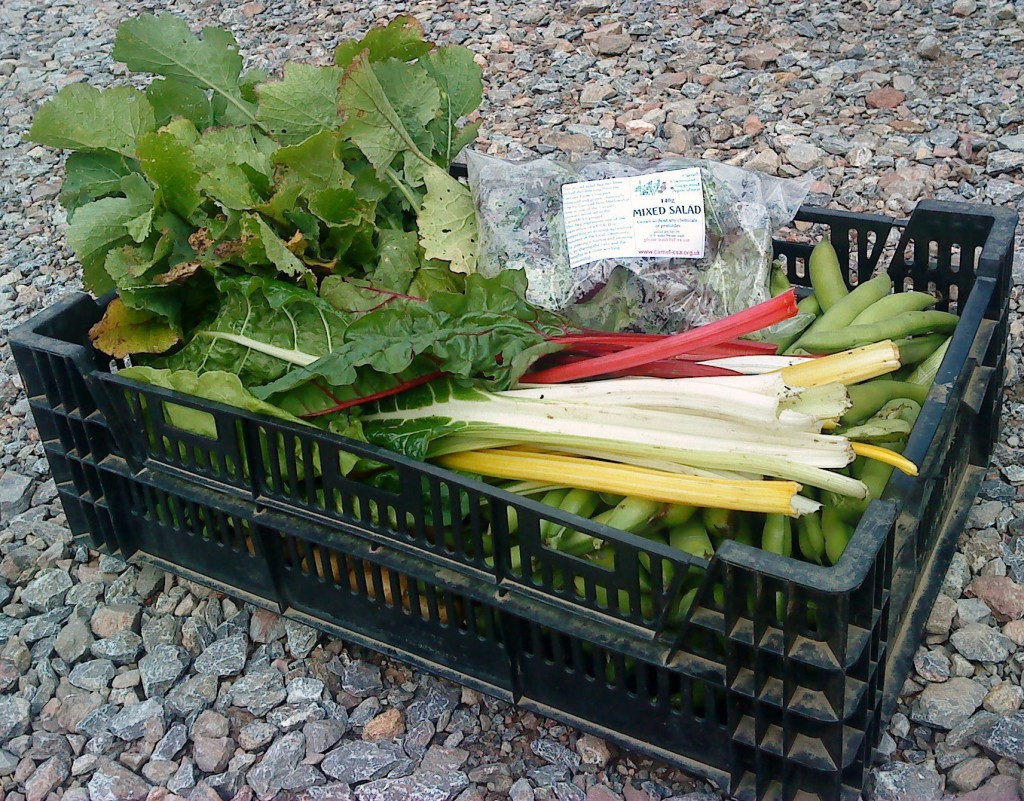
In summer there is likely to be more to share out in terms of surpluses. During the “hungry gap” in late winter, there is likely to be less. But it will even out over 52 weeks of the year. So loyalty pays off.
Box presentation
A lot falls down to how the boxes are presented. In the initial stages of Camel CSA’s vegetable box scheme, this definitely could have done with some improvement. For some of us volunteers it’s been a steep learning curve!
The core management group has discussed at length how to make our weekly share look more attractive. For instance, we are busy sourcing shallower boxes and useful things like paper bags, string and rubber bands so we can bunch up some of the smaller veg like spring onions and parsley. But we do have to be mindful of how much time this can take and we’re reluctant to introduce wasteful packaging.
It’s worth bearing in mind that members of the well-established Stroud Community Agriculture project have to pack (but not pick) their own share – a big saving on time for the growers and volunteers.
Our expert growers, who have their own businesses to run, can’t stand over us all the time. For the moment, they are drawing up some “box presentation guidelines” to help the picking and packing team.
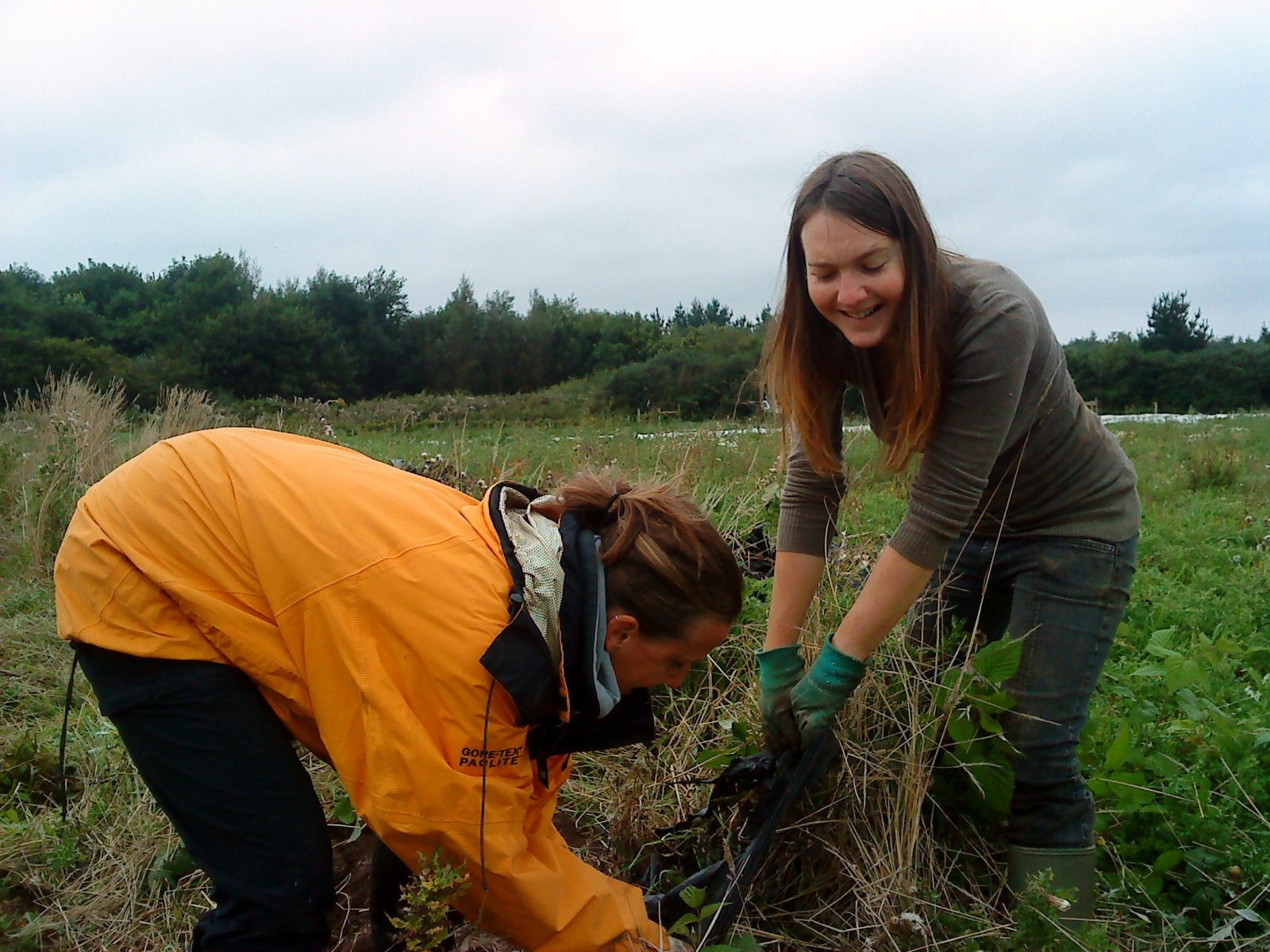
August 23, 2009
Camel CSA volunteers have almost completed the back-breaking task of removing the black plastic mulch from the overgrown strawberry beds. Now we can go ahead and sow a crop of green manure.
The hit team comprised expert grower Jane plus Danny, Mike H and Mike S. Charlotte made a start on the weeds in the beetroot bed.
We’re looking forward with mixed feelings to our next big task. We need to weed the hundreds of brassica plants that we planted last month.
Red cabbage, two varieties of green cabbage, cauliflower, red and green kale, and purple sprouting broccoli are all being shielded from predators under huge swathes of protective fleece.
Friday’s picking and packing team included Trish – who supervised the packing – Charlotte, Mike H, Penny and Robert.
Food intuition
We’ve had a visit on site from our newest member Gabriel Evans, a chef from New Zealand, who is author of the Food Intuition online food journal.
Gabe’s setting up a cookery school in St Columb, near Newquay. He says:
“There’s lot of misinformation and confusion around food and diet. My focus is on natural, wholesome food; what it really is, where to get it and how to prepare, cook and eat it.”
We assume that includes the vegetables grown on Camel Community Supported Agriculture’s plot at St Kew Highway!
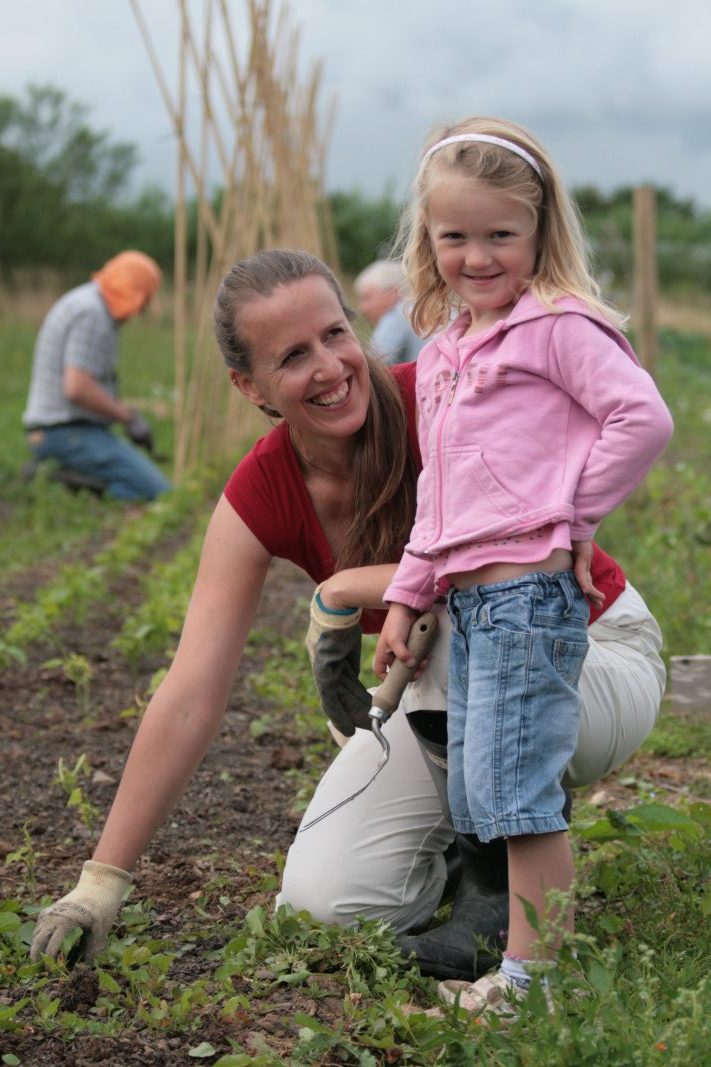
August 20, 2009
Camel Community Supported Agriculture is starting to source vegetables from outside suppliers. Up until now the contents of our weekly veg boxes have come from our own site at St Kew Highway and from our three expert growers.
Our business plan allows us to buy in up to 40% of box contents over the course of a year, but during the rest of Year Zero we may have to increase that proportion. Provided our bid for external funding is successful, this should not need to happen in the future.
This new move has led to some debate among members. It’s proved impossible to source sufficient organic vegetable supplies within a 30-mile radius. However we are in contact with some reliable small-scale local suppliers whose vegetables are not grown to organic principles.
Compromise
So we have a dilemma. Do we insist on organically-grown vegetables that could come from afar or do we buy local vegetables that may not be organic?
Either way, we have to compromise: either by clocking up extra food miles or temporarily abandoning our organic food-growing principles.
We’ve been sounding out the views of members at our recent volunteering sessions and over the ether. The response has been interesting.
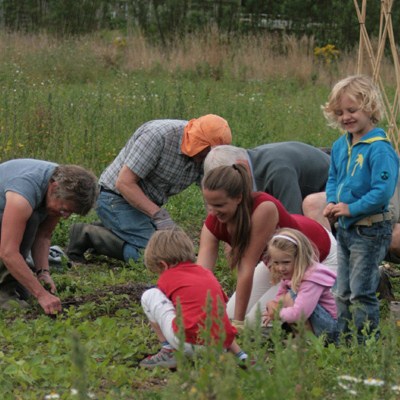
With a couple of exceptions, members feel they would rather eat local food that is not strictly organic provided it comes from within our own immediate community in north Cornwall. They don’t like the idea of clocking up food miles by using suppliers who are some distance away – maybe as far as east Devon.
Local food
Ideally, the membership would like to source organic veg locally but realise this is not practicable in the short term. They say they’d rather keep our veg box scheme going over the winter months and use the opportunity to start building up important local networks of small vegetable growers.
Some responses from our members: –
“Very happy with that – a pragmatic response to a short term problem.”
“We would definitely support the option of buying in local non-organic veg over shipping it in from further afield or taking a box holiday.”
“Buy from local, especially small-scale local, rather than organic from further afield if necessary (fewer food miles).”
“We’d be happy with local produce even if not totally organic rather than shipping it in.”
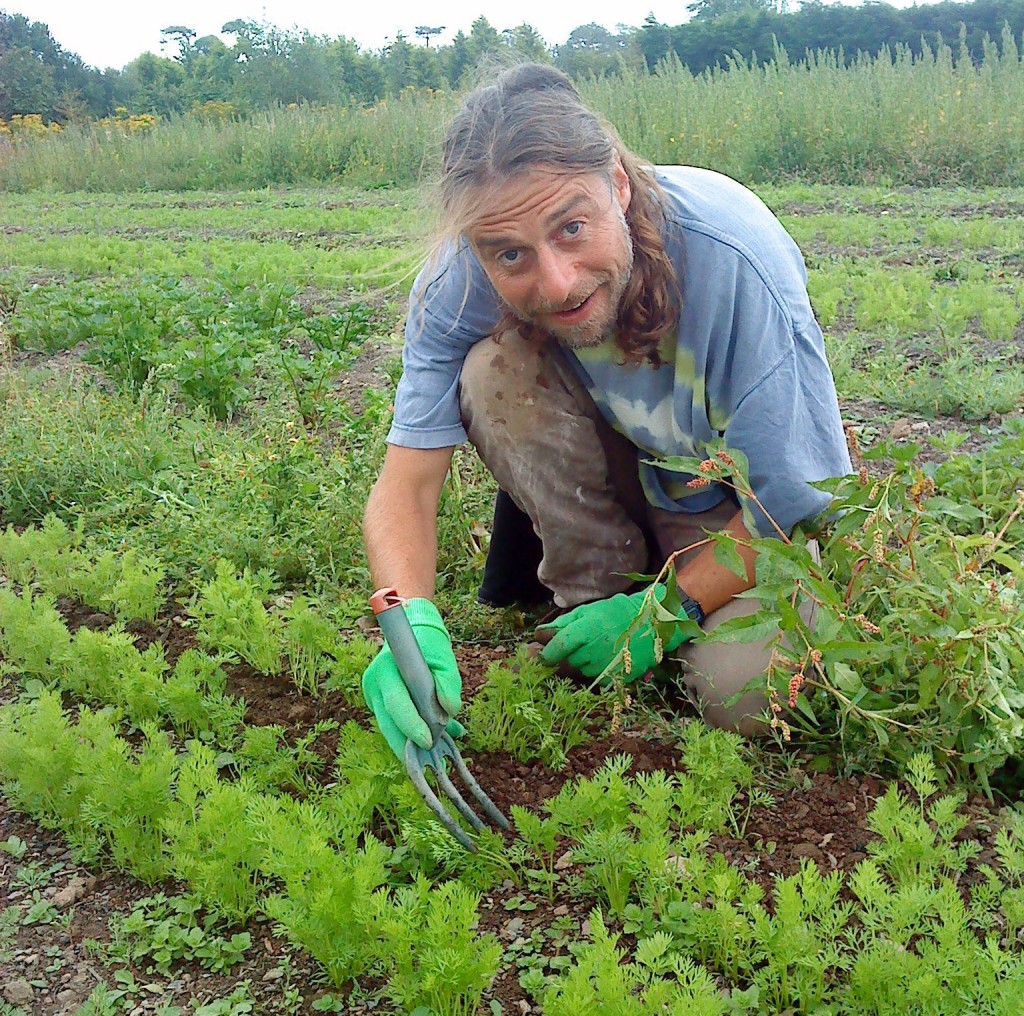
Green manure
Our volunteer teams have been busy weeding row after row of carrots. We’ve also begun the laborious task of pulling up the plastic mulch from the disused strawberry beds in preparation for sowing a crop of green manure.
Thanks to Sunday’s volunteers – expert growers Jeremy and Mark N, helped by Carmen, Charlotte, Danny, Ian, Kitty, Mike H and Mike S, plus Finn aged five and three-year-old Keira.
A special mention to Steve, who singlehandedly weeded a whole 29-metre-long carrot bed on Friday. Trish masterminded the packing of the boxes along with pickers Charlotte, Mike H and Penny.
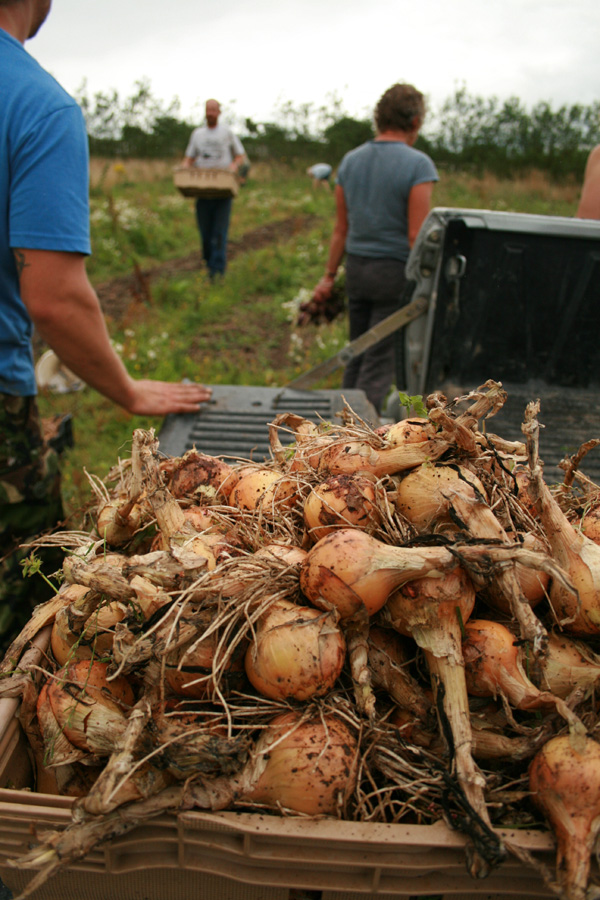
August 11, 2009
One vegetable that Camel Community Supported Agriculture members can rely on this season is the humble onion. There should be enough to fill the veg boxes until the New Year.
The growing team got on their hands and knees on Sunday and pulled up hundreds of red and white onions and a row of shallots before the heavens opened and the rain poured down (yet again).
Our onion harvest is now in dry storage in shed space kindly provided by Camel CSA volunteer Mark Malcolmson.
The expert growers have been taking an audit of what’s going to be available from our site at St Kew Highway over the next few weeks, apart from onions. We can expect more chard, beetroot, carrots, potatoes and parsley in the short term.
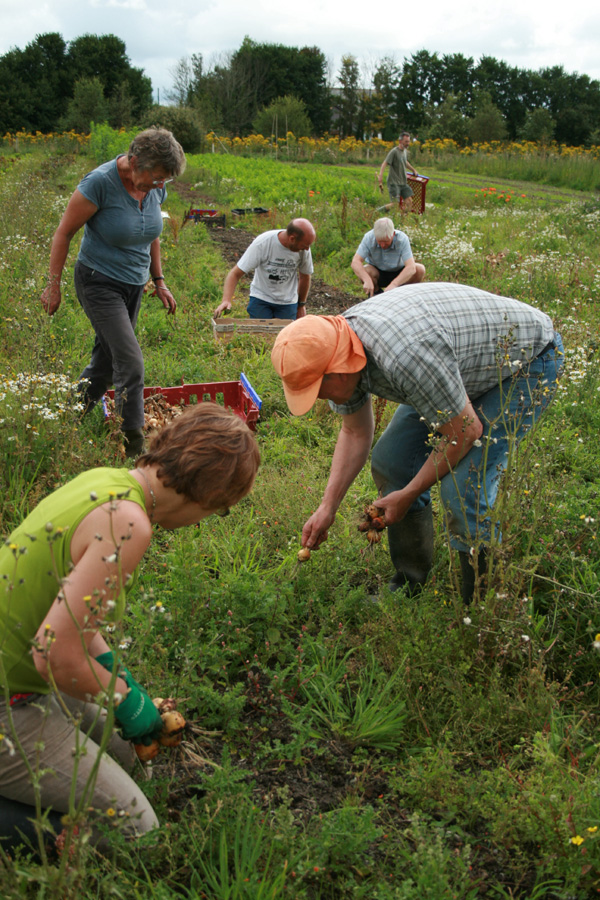
Pesky predators
In November we can look forward to cauliflower and two varieties of cabbage, followed by parsnips and kale. In December we should get some purple sprouting broccoli, with Jerusalem artichokes in January.
Unfortunately the runner beans, the French beans, the courgettes and our third crop of peas are all looking very sorry for themselves.
We’ve been overrun by voracious rabbits. It’s been a bad year for them. They’ve even been taking chunks out of the onions! The newest predators on the block are a family of partridges, which seem to love the peas.
Our financial wish-list includes predator-proof fencing and additional protective fleece, but we don’t have enough money at the moment to do anything more about this. Hence our bid for external funding.
Continuity of supply
In the meantime, we will continue to fill the gaps by buying in vegetables from our three expert growers. Mark Norman has plenty of courgettes, with leeks and swedes to come. He will also have celery and celeriac plus parsnips, potatoes and onions, if need be.
Jane Mellowship will continue to provide salad bags throughout the autumn and winter months. Jeremy Brown can supply salad leaves, tomatoes and cucumbers as well as peppers, chillies and pumpkins.
We are also busy looking locally for new partners who can supply us with potatoes, carrots and other mainstay items to help fill up our veg boxes during the autumn and winter.
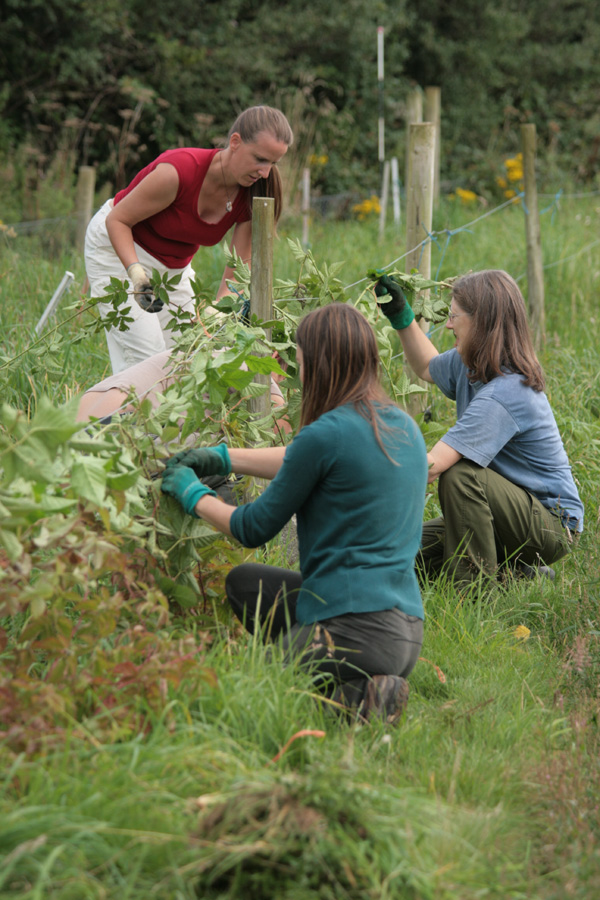
Big effort
Volunteer growers, pickers and packers are making a fantastic effort at the moment on Friday and Sunday mornings.
Apart from harvesting the onions, the growers have made a concerted attack on the weeds, as well as pruning and tying up the boysenberries. All under the guidance of expert growers Jane, Jeremy and Mark N, helped variously over the two days by Charlotte, Danny, Fiona, Kitty, Mark M, Mike H, Mike S, Penny and Trish.
Friday’s picking and packing team comprised Callum (10), Leonie, Mark M, Mike H, Robert, Tom (11) and Trish, who packed the boxes. They harvested, sorted, counted out and bunched up enough vegetables to fill 23 boxes for grateful members. But they still need more rubber bands!
Many thanks to Jeremy G, who took the pictures.

August 10, 2009
Postal workers have been under fire for littering the ground with unwanted red rubber bands. But at Camel CSA we’re looking for as many as we can get.
Our picking and packing team urgently needs rubber bands for bunching up spring onions, chard, parsley and other such delicacies to go in our veg boxes.
So if you know of any postboxes where they get discarded, or have a small stash lying around at home or in the office, please drop them in for us at St Kew Harvest farm shop.
BBC News came up with 10 uses for a red rubber band but makes no mention of veg boxes. Pity.
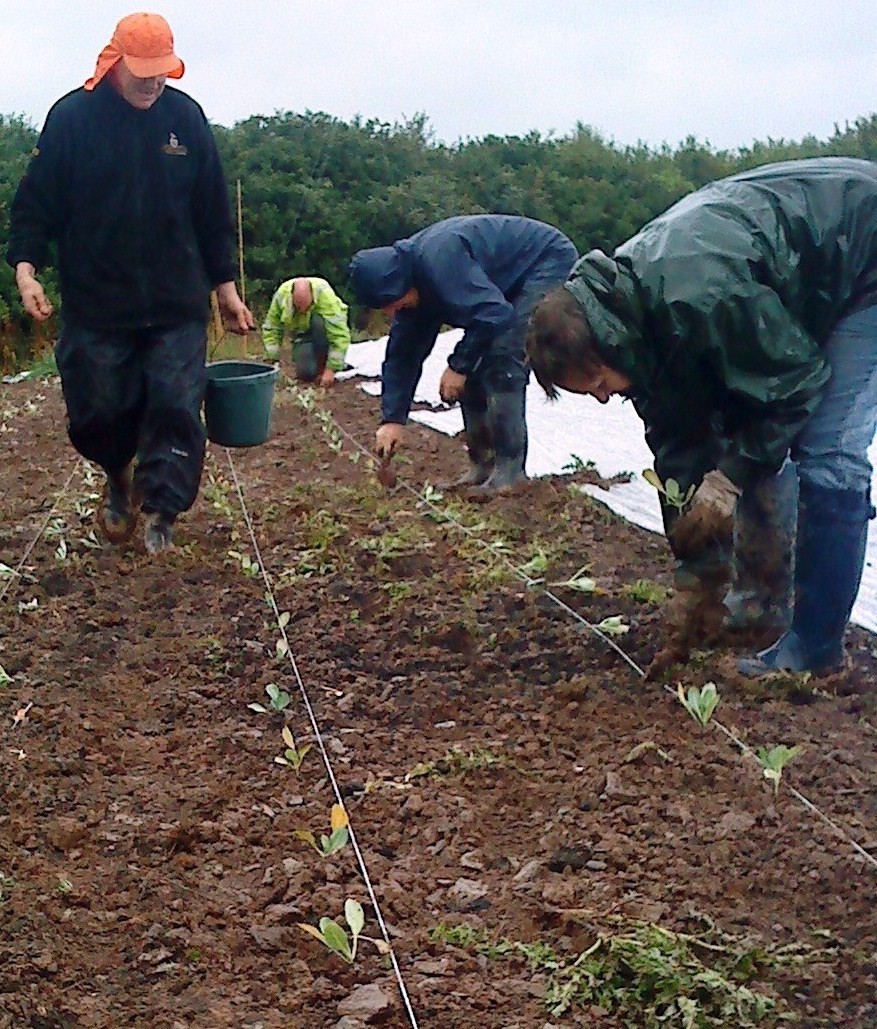
July 29, 2009
The volunteer growing team braved monsoon conditions on Sunday to plant nearly 1,000 brassica seedlings donated by Camel Community Supported Agriculture’s latest sponsors – Fentongollan Farm at Tresillian.
The rain ran down inside our collars, our trowels got clogged with wet earth and our boots became totally caked in mud, but we all remained remarkably cheerful.
In all, we planted 10 long rows – five of purple sprouting broccoli (two varieties) and five of winter cabbage (Dutch white and primo).
The generous donation of over 1,500 plants means that we can look forward to plenty of green vegetables in the early part of next year.
By then we hope we’ll have been successful in our bid for outside funding from the Lottery’s Local Food programme to enable us to buy a polytunnel to raise our own seedlings and salad crops.
Jeremy Hosking of Fentongollan explained why he offered us his surplus brassica plants:
“We do raise millions of plants every year – 80 million in fact. We have certain lines that don’t always sell out so rather than throw them away we like to give them away.”
And for this we’re extremely grateful!
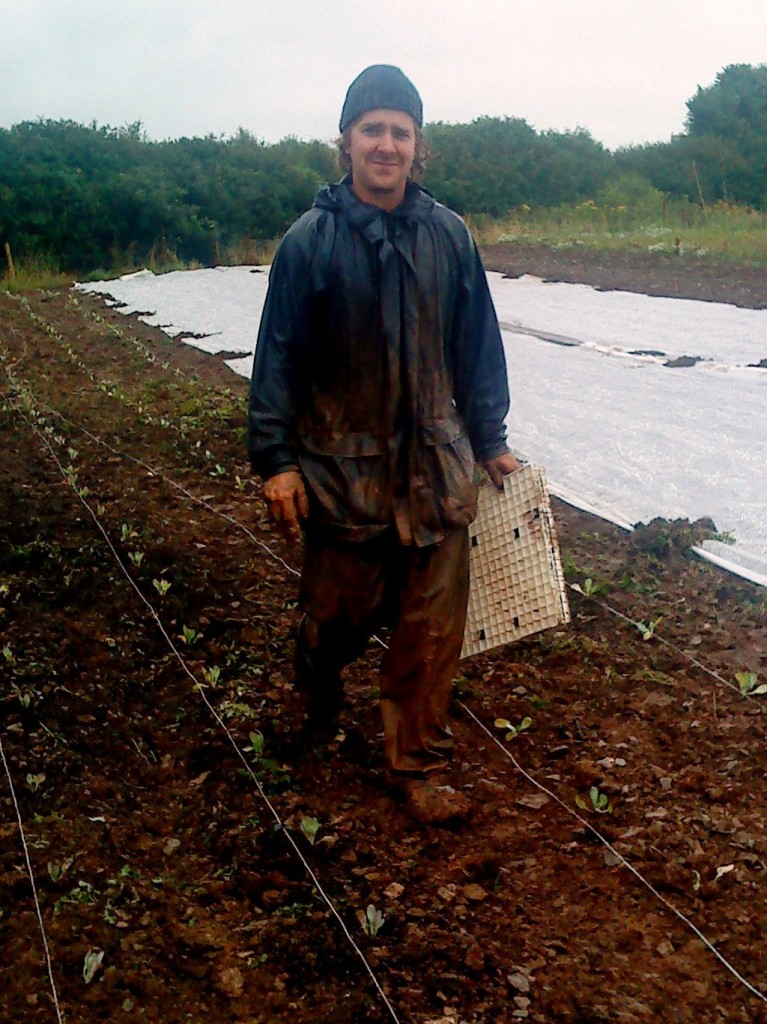
Intrepid
Last Friday Camel CSA expert grower Jeremy Brown and our secretary Mike Sadler singlehandedly planted 450 donated kale seedlings – both red and green varieties.
Later this week we will plant the cauliflower and leeks that make up the remainder of the gift from Fentongollan. Weather permitting, we’ll also start preparing another planting area.
The torrential rain is helping the seedlings to put out new shoots. At least they won’t need watering in. Lengths of fleece are protecting them from a long list of hungry predators – from rabbits to badgers to pheasants to pigeons to slugs to snails.
A big thank you to the intrepid growing team – expert growers Mark Norman and Jeremy Brown plus Charlotte, Gillian, Kitty, Mike H, Mike S, six-year-old Sophie and Freddie, aged four.
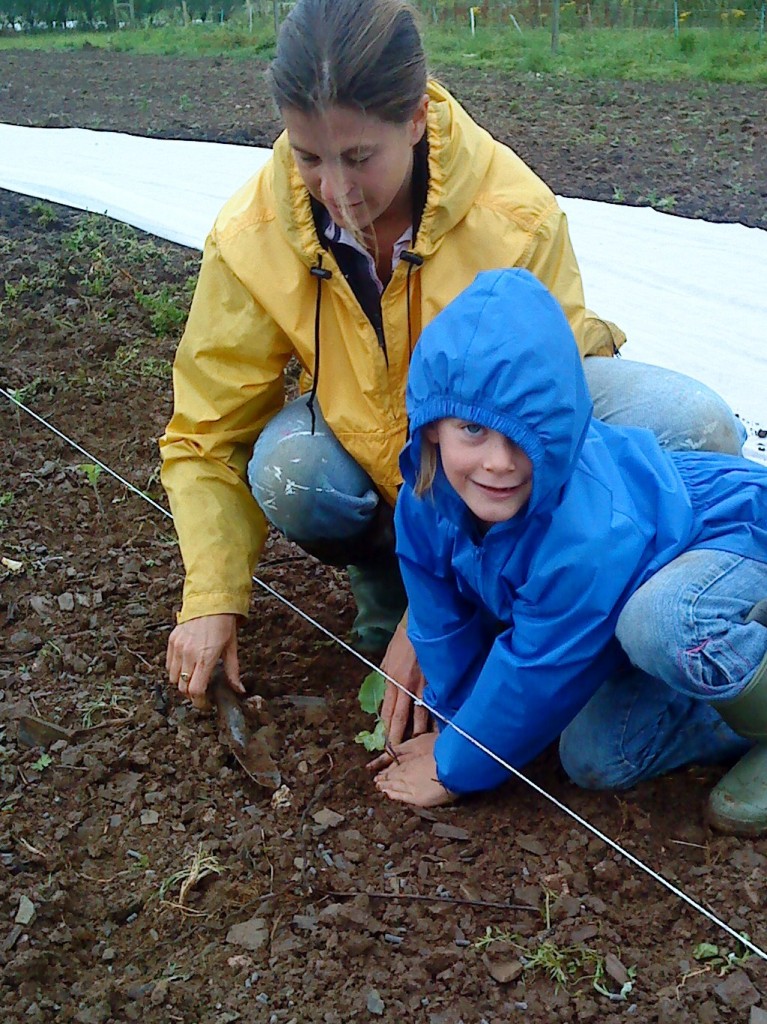
Sharing the harvest
There was also a keen turnout last Friday to help with the picking and packing of 24 vegetable boxes for our members. Grateful thanks to expert grower Jeremy Brown and to Callum, Henrietta, Jenny, Mark, Mike H, Penny, Robert, Steve and Trish.
Over the next few weeks we can look forward to more onions, potatoes, Swiss chard, beetroot, turnip, radishes, lettuce and parsley plus runner beans and another crop of peas. Provided we get some warm sunshine and the slugs and snails stay away, we will also have some French beans.
However the non-stop rain is also resulting in a new crop of weeds, so the growing team needs all the help it can get on Friday and Sunday mornings.
We look forward to seeing you. Just make sure you bring waterproofs and wellies!


